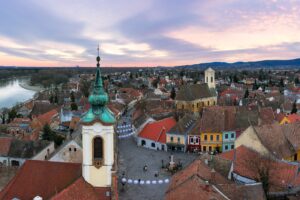Did you know that around half of the 6900 distinct languages of the world is destined to be extinct by the end of the century? This shocking revelation is just one of the many reasons behind the establishment of International Mother Language Day which is held on 21 February.
There is an Irish phrase ’ní tír gan teanga’ that describes the mother tongue’s value very well. It means: no land without language. Our identity is strongly linked to the language that we speak natively, the one we learn from birth. Some ancient languages sadly die out because of the decreasing number of their speakers. Also, some disappear and become irreplaceable for other reasons. For one, according to UNESCO, several languages get into the endangered category because parents no longer teach it to their children, and the language isn’t used in everyday life.
The Aims of International Mother Language Day
Since its establishment in 2000, this worldwide annual observance aims at protecting all mother tongues as a crucial part in preserving our heritage. It is dedicated to encourage linguistic diversity and promote the importance of multilingual education. It’s also important to develop awareness of both linguistic and cultural traditions, and inspire solidarity based on dialogue, tolerance and understanding. What does UNESCO do? It promotes and sponsors events related to chosen themes each year, organized at its Paris headquarters which became the heart of the initiative. In past years, these themes were linguistic diversity, endangered languages, braille and sign languages, multilingual education, and so on.
Why is the mother language so significant? It is the language of heart and mind, it has a great impact on our emotional and mental growth. We use our native language to think, dream and write poems. As an indicator of our cultural identity it links us to the society we are coming from. It provides a strong foundation when it comes to learning a foreign language. It’s a treasure of irreplaceable value. Something that defines us, something to be proud of.
Did you know?
We, Hungarians are lucky enough to call Magyar our own language, with around a million words and nearly 13 million native speakers. The language is considered to belong to the Uralic language family, but there is controversy over its origins, especially throughout the 18-19th centuries. It is spoken not only in Hungary, but in surrounding countries too, due to historical reasons. The first written accounts of Hungarian are dated back to the 10th century. The language itself is believed to have separated from its Ugric relatives at the beginning of the first Millennium B.C.E.






